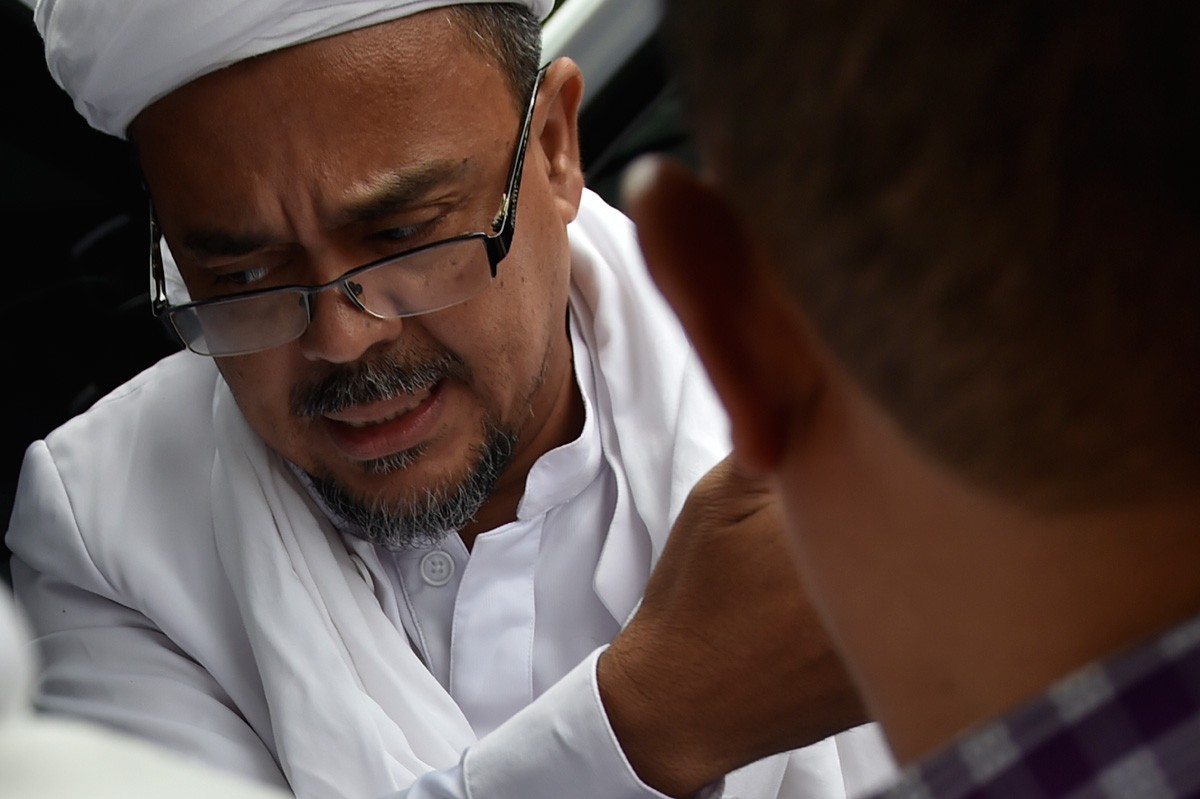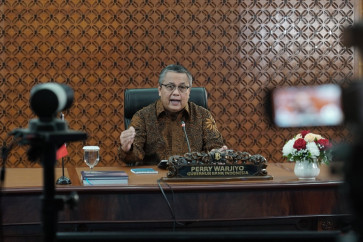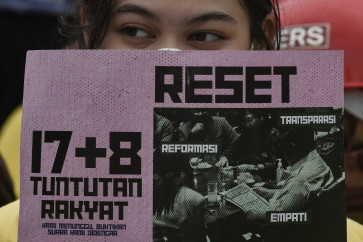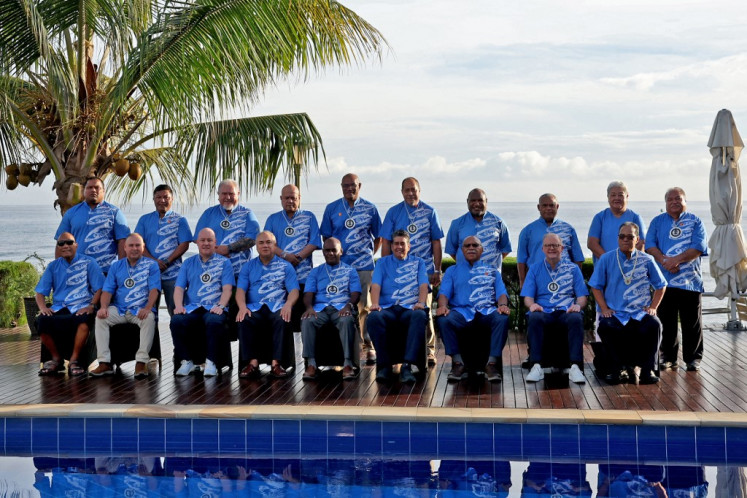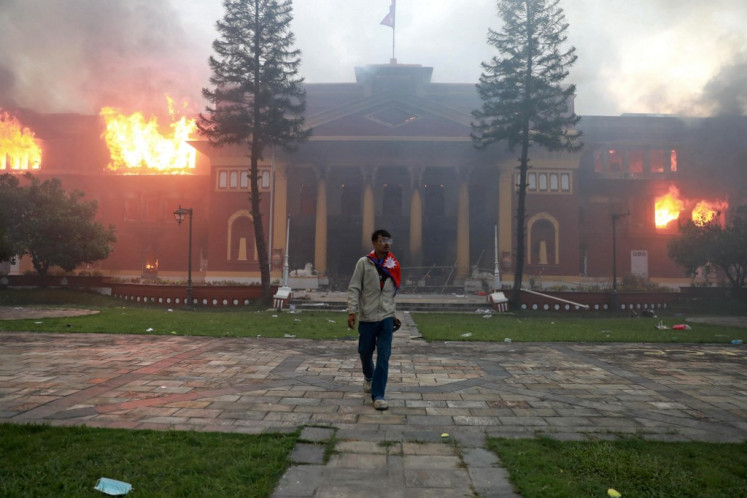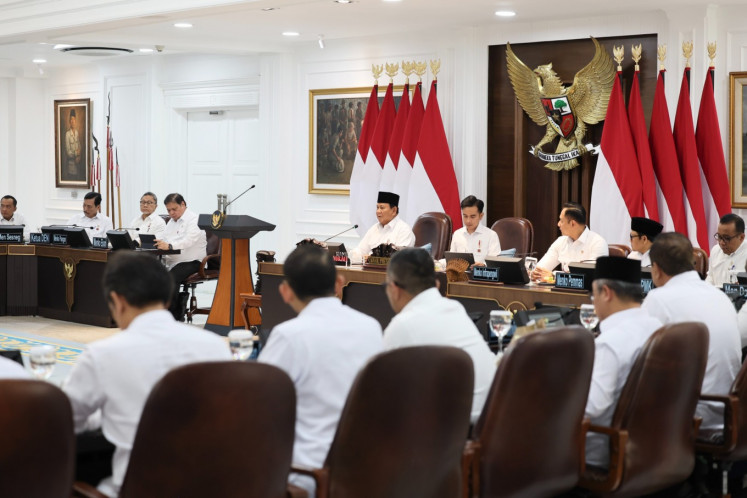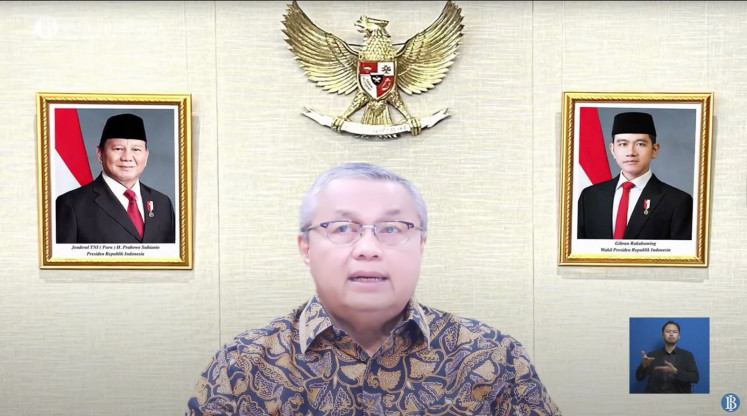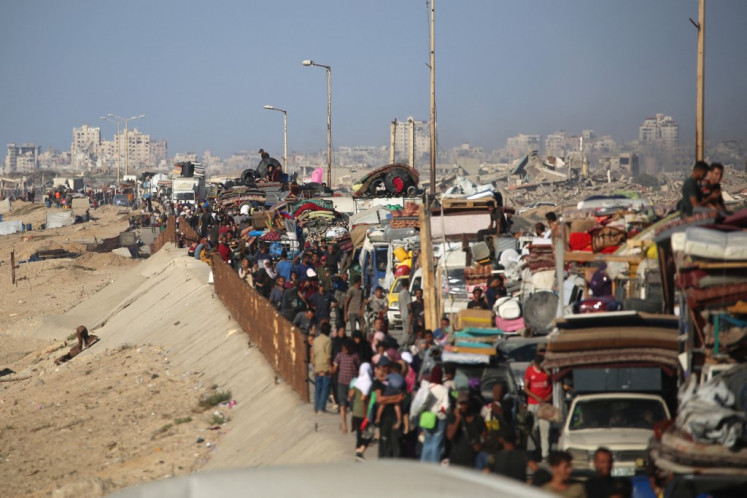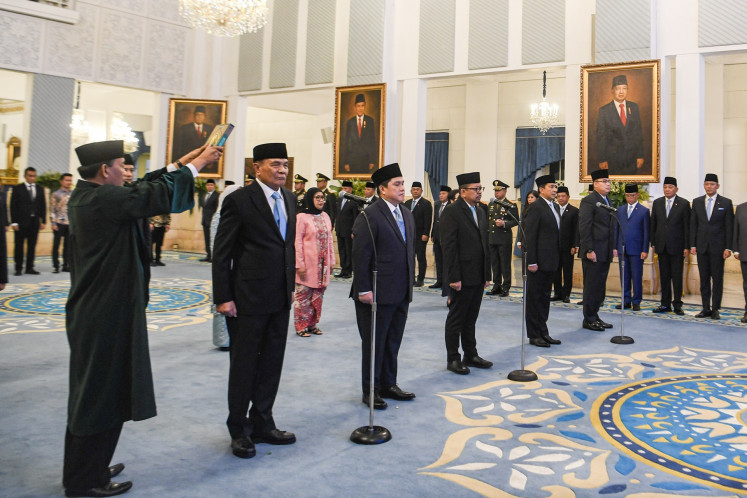Popular Reads
Top Results
Can't find what you're looking for?
View all search resultsPopular Reads
Top Results
Can't find what you're looking for?
View all search resultsWhen Gus Dur's 'Indonesian Islam' goes down the drain
The Nov. 4 protest, which was dominated by triumphalist fervor on the part of some Indonesian Muslims against the Christian governor of Jakarta, Basuki “Ahok” Tjahaja Purnama, was of course far from what these pluralist Muslim leaders envisioned for Indonesian Muslims.
Change text size
Gift Premium Articles
to Anyone
I
n a July 1983 edition of Tempo magazine, Abdurrahman “Gus Dur” Wahid proposed his idea of Pribumisasi Islam (indigenous Islam). His idea was simple, that the local expression of Islam in Indonesia was just as authentic as the expressions of Islam from Hijaz, the heartland of the religion.
Gus Dur did two things by writing the piece: first, he effectively countered the critiques from orientalist scholars like Clifford Geertz who saw the Indonesian expression of Islam as Islamically inauthentic compared to the “High Islam” in Middle-Eastern countries.
Second, he substantially enshrined the cosmopolitan spirit of Islam by embracing the diversity of religious expressions and traditions in different contexts.
In short, Gus Dur rejuvenated the spirit of Islam while tackling the orientalist voices at once. You cannot be more “Islamic” than that.
Fast forward to 2016 and we find a large number of Indonesian Muslims desperately trying to emulate the Islamic expressions of their Middle-Eastern counterparts and tragically failing.
Be it due to the reaction against secularization and modernity, the success of Saudi Arabia-sponsored fundamentalist education programs, or the consumerist drive of the booming “Islamic market”, this Arabicization of Indonesian Islam brings more harm than good, and the ultimate victims of all of this are Indonesia’s pluralism and the Islamic cosmopolitan spirit.
Unlike the Arab-Islamic countries, neither race nor religion can possibly unify Indonesia. Hence, the single national identity was the way chosen by our founding fathers to establish the country.
The same realization came upon the two biggest Muslim organizations in Indonesia, Nahdlatul Ulama (NU) and Muhammadiyah, which have been deeply immersed in the nation-building process since the day of the Proclamation of Independence.
Alternative concepts of nationhood based either on ethnicity or religious affiliation were at best considered as fringe and have always been successfully sidelined, though they have consistently come up in different forms during the process of building of the nation.
Furthermore, Indonesia has always been a unique case among other Islamic-majority countries and Islamic countries for its harmonious combination of sharia and local wisdom.
The presence and embodiment of sharia in the daily life of Indonesian Muslims did not signify an embodiment of “imperial theology” of Islam that requires a rigid border between Muslims and non-Muslims.
In fact, Indonesian Muslim leaders like Abdurrahman Wahid, Nurcholish Madjid and Mustofa Bisri drew inspiration and wisdom from the principles of sharia to construct a peaceful framework for interreligious harmony.
The end results were a body of inclusive Islamic practices and fluid interreligious relations based on the principle of the common good for all.
The Nov. 4 protest, which was dominated by triumphalist fervor on the part of some Indonesian Muslims against the Christian governor of Jakarta, Basuki “Ahok” Tjahaja Purnama, was of course far from what these pluralist Muslim leaders envisioned for Indonesian Muslims.
The literalist understanding of the Quran and an absolute rejection of hard-line Muslims to the polyvalent perspectives about Islam as a living tradition turns the understanding of Indonesian Islam proposed by Gus Dur on its head.
In the hands of these Muslims, their majority position in the country, once a source of peaceful coexistence, becomes a political justification to subdue minorities.
Likewise, the cosmopolitan spirit of Indonesian Islam is crushed under the rigid doctrinal traditionalism that reduces Islam to categorical wordplay such as, kafir (infidel) and Muslim, and hell and heaven.
It would be an overstretch to say that the pluralist character of Indonesian Islam has been totally incinerated by the movements of hardline Indonesian Muslims.
However, it is also wrong to not be worried and mindful about the fact that such movements are gaining significant ground today.
It is horrifying to see how easy it is for an Indonesian Muslim today to invoke the blasphemy law and the spirit of offensive jihad just to establish his/her politico-religious supremacy over others.
It is also sad to see how Muslims who have used violence in the name of Islam are placed on a pedestal as mujahid and praised for their violent actions. Indonesia is neither Palestine nor Syria, but the acute victim complex that some Indonesian Muslims suffer from is significantly more severe than those who live in any war-torn country.
This misplaced and misunderstood notion of jihad combined with radical doctrinal traditionalism is a disaster for Indonesia’s role as the largest democratic Muslimmajority country in the world.
With the current decay of the Middle-Eastern region, intractable turmoil in Turkey and long-lasting conflict in countries like Pakistan, Indonesia should be at the helm of progressive development in the Muslim world.
Hence, the problem of growing radicalism in some sections of the Indonesian Islamic community will not only affect the dynamics of interreligious life within the nation, but also influence the standing of the Muslim world in the international political arena.
A big part of the future of the Muslim world depends on how far Muslims in Indonesia can hold on to their cosmopolitan spirit and embrace the diversity within the nation. Thus, there is no option for us, Indonesian Muslims, other than to go back to the spirit of Indonesian Islam as conceptualized by Gus Dur, Nurcholish, Mustofa and other pluralist Muslim leaders.
It is in the spirit of diversity as sunnatullah (divine providence) that we must understand the notion of jihad not in its offensive form or in the invocation of religious supremacy that closes the way to dialogue.
***
The writer is Nostra Aetate Fellow ‘16 at the Pontifical Gregorian University, Rome.
---------------
We are looking for information, opinions, and in-depth analysis from experts or scholars in a variety of fields. We choose articles based on facts or opinions about general news, as well as quality analysis and commentary about Indonesia or international events. Send your piece to community@jakpost.com.

